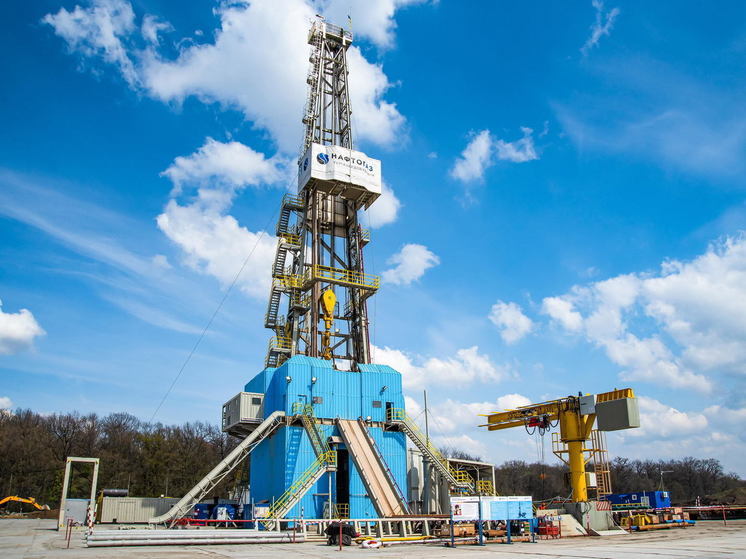U.S. court to consider Kyiv's claim for $5 billion
Kyiv continues to seek compensation from Moscow for assets in Crimea that were transferred to our country after the peninsula became part of Russia. This time, Naftogaz sent a petition for the recovery of $5 billion, in which the Ukrainian side estimates its former mining, transport and service companies operating on the Black Sea coast. The lawsuit was filed in the District Court of the American District of Columbia, which, based on the existing geopolitical alignments, is likely to satisfy him. But this does not mean at all that the demands of the court will be fulfilled by the defendants — the Russian side.

Until 2014, when Crimea joined Russia, the Ukrainian concern Naftogaz owned several industry companies based on the peninsula, most notably Chornomorneftegaz, with production capacities of more than 1.5 billion cubic meters of gas per year. The enterprise also included a gas pipeline system, underground gas storage facilities and offshore drilling platforms. In 2016, Naftogaz filed a claim with the Hague Arbitration for the recovery of $5 billion from Russia, in which Kyiv estimated its Crimean oil and gas losses. After several years of consideration of the case, this April, the Dutch court ordered Moscow to pay Ukraine the specified amount. This turned out to be not enough for Naftogaz, and for the sake of persuasiveness, the company filed a petition with a similar requirement in an American court. Why Kyiv needed this, what the Ukrainian side wants to achieve and what is the reaction to the Russian lawsuit, we found out from the deputy head
— This issue, of course, lies in the legal plane, however, there is also a political background that leads to such a lengthy trial. In recent years, international law has been literally bursting at the seams due to various contradictory and controversial decisions of the legal authorities of different states. The sanctions pressure exerted on Russia has radically changed the rules of the game in the world market. At the same time, many points that were previously veiled have become more transparent. The Ukrainian petition submitted to the American judicial body is unlikely to be interpreted in Russia's favor. Another thing, it is not entirely clear why Kyiv chose the American District Court to continue the proceedings, if there is already a similar decision of the Hague Arbitration. So far, the possibilities and actions of this instance seem rather auxiliary and advisory.
— At present, in matters of international legal law, there are no topics that can be judged unambiguously. The property of Naftogaz located on the territory of the peninsula was nationalized after the annexation of Crimea to Russia. Only, if Kyiv values its raw material enterprises so much, then why did the Ukrainians fire at drilling platforms in the Black Sea, causing damage to their supposedly own mining industry? It is impossible to deal with all controversial issues without strong political will on the part of each of the parties involved in the process, and it is unlikely that we will have to count on this in the near future.
— At first glance, this is the standard wording adopted in such cases in diplomatic circles. However, if you think about what kind of rebuff Russia can give in such cases, then a whole list of standard combinations suggests itself: in some situations, if the laws allow it, you can ignore the claims made; in others, to send their own objections and counterclaims to the courts. In fact, Kiev's filing of a petition with an American court is a continuation of a routine judicial history. The whole set of response actions of Russia must be taken, however, it must be taken into account that the decisions received will only make sense after the end of the conflict in Ukraine.
— From a legal point of view, Ukraine is unlikely to be able to recover from Russia monetary compensation even in the territories of third countries, as Kiev is going to do. The geopolitical situation will not allow the domestic jurisdiction to recognize the decisions of foreign instances made under the current conditions, whether it be arbitration in The Hague or the District Court of the District of Columbia. It is doubtful that Ukrainians will be able to use Russian assets frozen and blocked abroad, especially since, as far as I know, Gazprom has practically no such property left.
At the same time, it should be taken into account that the situation with any Russian property located on «unfriendly» territory is not only legal, but also political in nature, so the most unexpected court verdicts, including unjustified and inexplicable in legal terms, cannot be ruled out.


